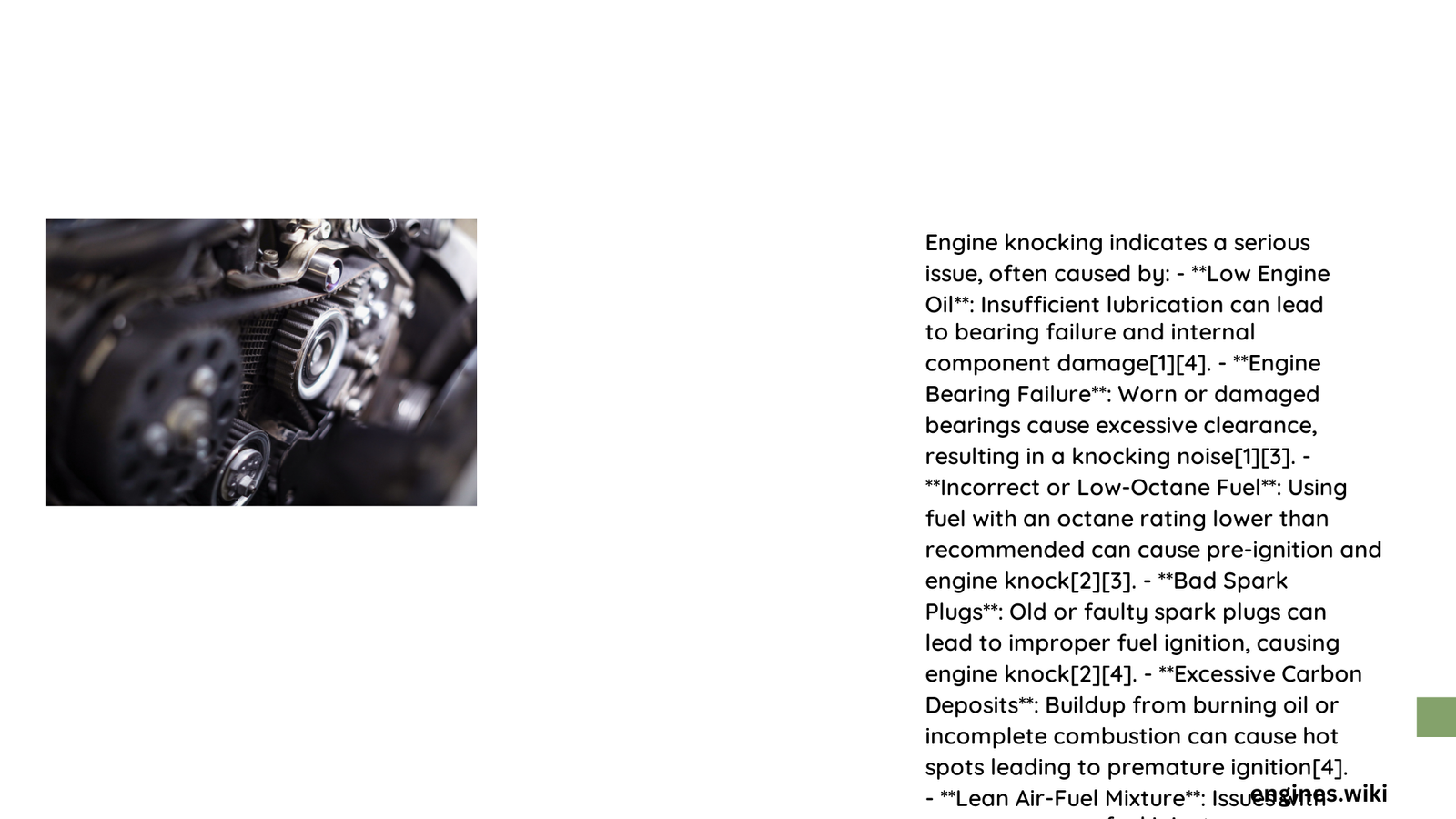Engine Starts Knocking: A Critical Vehicle Health Alert
When an engine starts knocking, it signals a potentially serious mechanical issue that demands immediate attention. This alarming sound represents internal engine stress, potentially caused by multiple mechanical failures ranging from improper fuel combustion to component wear. Ignoring these warning signs can lead to catastrophic engine damage, expensive repairs, and complete engine failure.
What Causes Engine Knock?
Mechanical Component Failures
- Worn Bearings: Deteriorated engine bearings create metal-to-metal contact
- Timing Belt Issues: Misaligned or damaged timing mechanisms
- Spark Plug Malfunctions: Incorrect firing sequences
Fuel and Combustion Problems
- Low Octane Fuel: Premature fuel ignition
- Lean Fuel Mixture: Improper air-fuel ratio
- Carbon Deposit Accumulation: Uneven combustion surfaces
| Severity | Potential Damage | Recommended Action |
|---|---|---|
| Low | Minor Performance Drop | Immediate Diagnostic Check |
| Medium | Component Wear | Professional Inspection |
| High | Potential Engine Failure | Immediate Repair Required |
How to Diagnose Engine Knock?
Sound Characteristics
- Metallic tapping noise
- Rhythmic knocking during acceleration
- Increased noise under engine load
Diagnostic Steps
- Listen to knock location and frequency
- Check oil pressure and quality
- Verify fuel octane rating
- Inspect spark plug condition
- Perform compression test
What Are Repair Strategies?
Immediate Interventions
- Use higher octane fuel
- Check and replace spark plugs
- Inspect timing belt alignment
- Verify oil levels and quality
Professional Repair Techniques
- Engine bearing replacement
- Fuel system cleaning
- Timing belt adjustment
- Comprehensive engine diagnostic scan
Prevention Recommendations
Maintenance Protocols
- Regular oil changes
- Use manufacturer-recommended fuel
- Follow scheduled maintenance
- Monitor engine performance indicators
Cost Implications
| Repair Type | Estimated Cost Range |
|---|---|
| Spark Plug Replacement | $100 – $300 |
| Timing Belt Service | $300 – $1,000 |
| Engine Bearing Replacement | $1,000 – $3,000 |
| Comprehensive Engine Repair | $2,000 – $5,000 |
Expert Warning Signs
Critical Indicators
- Persistent knocking sound
- Reduced engine performance
- Increased fuel consumption
- Vibration during acceleration
Technical Insights
When an engine starts knocking, it represents a complex interaction between mechanical components, fuel combustion, and internal engine dynamics. The sound emerges from uncontrolled fuel detonation or mechanical component friction, indicating potential systemic failures.
Conclusion
Addressing engine knocking requires systematic diagnosis, professional expertise, and proactive maintenance. Early intervention can prevent extensive damage and preserve your vehicle’s long-term performance and reliability.

